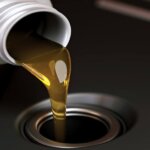Swiss food giant Nestle’s turnover increased in 2021, results showed Thursday, thanks not only to its shift towards the booming vegetarian market — but also price hikes triggered by cost increases.
Nestle’s net profit and sales rose as it sold shares in cosmetic company L’Oreal and increased prices amid soaring global inflation.
Businesses have faced supply chain disruptions and decades-high inflation as the global economy recovers from the Covid-19 pandemic and energy prices surge.
Nestle — which makes everything from coffee to pet food and plant-based products — said its net profit bounced by 38.2 percent to 16.9 billion Swiss francs ($18.3 billion, 16.1 billion euros) last year.
Total sales rose 3.3 percent to 87.1 billion francs as catering sales recovered and price hikes accelerated in the last quarter under inflationary pressure.
“In 2021, we remained focused on executing our long-term strategy and stepping up growth investments, while at the same time navigating global supply chain challenges,” Nestle chief executive Mark Schneider said in a statement.
“We limited the impact of exceptional cost inflation through diligent cost management and responsible pricing,” he said.
In developed markets, growth reached 7.2 percent — the highest level for more than a decade, the group said. But growth remained slightly stronger in emerging markets at 7.8 percent.
The growth was driven by coffee — in particular by pods marketed under the Starbucks brand — pet food and vegetarian products, which are expanding rapidly.
Pet products also performed well, with double-digit growth for Purina PetCare.
Sales in vegetarian and plant-based food — an area where Nestle and other food companies have been investing — also grew at a double-digit rate to reach 800 million francs.
Nestle’s organic growth — which excludes the effects of acquisitions or divestments to focus on a company’s core operations — reached 7.5 percent, exceeding objectives, with coffee the largest contributor.
Organic growth at the group, which owns Nespresso coffee pods, Maggi soups and Smarties confectionery, had been 3.6 percent in 2020.
Nestle’s operating margin was however slightly below its forecasts, at 17.4 percent against a predicted 17.5 percent, due to what it said was the significant increase in the cost of raw materials, packaging, transport and energy.
On top of this came the costs of integrating the brands of The Bountiful Company, a US dietary supplements firm.
Nestle was less optimistic in its forecasts for 2022, lowering the bar for its organic growth target to five percent, while it also expects an operating margin of 17-17.5 percent.
Its dividend for 2021 will be increased by five centimes to 2.80 francs per share.


